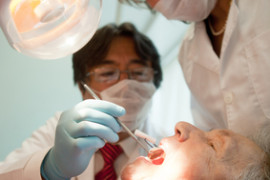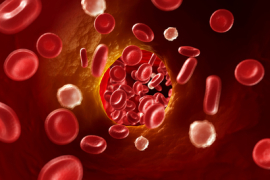The age-old question: Does gum disease cause heart disease? New research performed at the University of Göttingen suggests this may, in fact, be the case.
While the researchers were quick to say that further investigation must be done in order to verify any potential causal relationship, their study does seem to agree with much of the research we have seen in recent years on this controversial topic.
The researchers examined the periodontal status of 10 patients, then took tissue samples during a cardiac operation. They found that all patients had periodontitis and that most were severe cases. Furthermore, they found DNA from the oral microbes in several areas of the heart, but numbers were significantly higher in the right atrium and corresponded with higher inflammatory markers also found in the atrial tissue.
So how does this affect our heart health? Researchers concluded that the presence of periodontal microbes in heart tissue incites an inflammatory immune response involving “macrophage infiltration.”
We know from previous studies that oral bacteria such as P. gingivalis play an integral role in the transformation of macrophages into foam cells, which is one of the first steps of atherosclerotic disease. And we know from research as recent as last week that periodontal infection can easily spread to the heart.
As we continue to compile evidence of a causal relationship between periodontal disease and heart disease, studies like this are crucial to the shifting paradigm toward oral-systemic healthcare.
Have you seen firsthand the effects of periodontal infection on heart disease patients? Submit your research, article, or case study to the OSH News Network for consideration to become an OSH News Contributor.
Source: Correlation of DNA, LPS-binding-protein and CD14 of periodontal microbes and cardiac tissue-preliminary results



